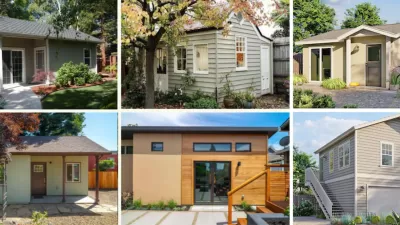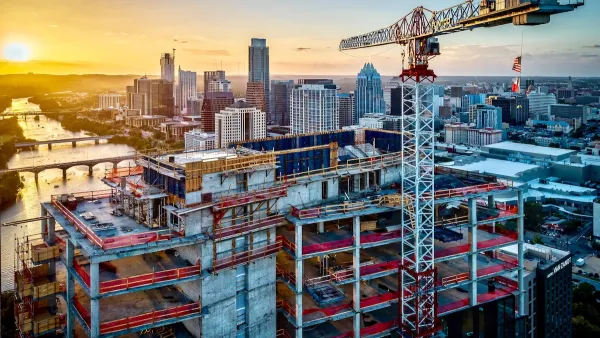One resident argues that adding a unit for long-term rental is too expensive and difficult, especially when compared to the city’s ‘super easy’ process for permitting a short-term or vacation rental.

Despite the city’s housing affordability crisis and official pledges to support increased housing production, one Seattle resident found that the process of converting his basement to an apartment for long-term renters is “painful, expensive, and risky,” unlike the “super simple” process for adding a short-term rental unit, a practice that many housing advocates blame for reducing the supply for long-term renters.
Writing on his experience in the Seattle Times, Eric Fisk notes that “For a short-term rental on your property there are no city inspections or standards for renting out your space beyond a minimal cost for registering with the city.” (According to the city’s website, some STRs, such as those that are not the owner’s primary residence or are a dedicated unit, are required to comply with the Rental Registration and Inspection Ordinance). However, adding an Attached Accessory Dwelling Unit (AADU) for long-term rental is trickier. For example, “One critical rule is that you cannot put tenants in a finished garage space if you are in a single-family zone, even if removing that parking would create new on-street parking in front of your driveway.”
According to Fisk, this has led to a huge imbalance in short-term and long-term rentals in Seattle, with only around 1,000 AADUs built since the city passed its Housing Affordability and Livability Agenda in 2016.
Fisk suggests several ways to remedy the situation, including closing the regulatory gap, waiving parking requirements for certain single-family homes, eliminating permitting fees, and providing more resources to homeowners who want to convert parts of their homes to AADUs.
FULL STORY: If Seattle cares about affordability, why does it make it so hard to add basement apartments?

Maui's Vacation Rental Debate Turns Ugly
Verbal attacks, misinformation campaigns and fistfights plague a high-stakes debate to convert thousands of vacation rentals into long-term housing.

Planetizen Federal Action Tracker
A weekly monitor of how Trump’s orders and actions are impacting planners and planning in America.

Chicago’s Ghost Rails
Just beneath the surface of the modern city lie the remnants of its expansive early 20th-century streetcar system.

Bend, Oregon Zoning Reforms Prioritize Small-Scale Housing
The city altered its zoning code to allow multi-family housing and eliminated parking mandates citywide.

Amtrak Cutting Jobs, Funding to High-Speed Rail
The agency plans to cut 10 percent of its workforce and has confirmed it will not fund new high-speed rail projects.

LA Denies Basic Services to Unhoused Residents
The city has repeatedly failed to respond to requests for trash pickup at encampment sites, and eliminated a program that provided mobile showers and toilets.
Urban Design for Planners 1: Software Tools
This six-course series explores essential urban design concepts using open source software and equips planners with the tools they need to participate fully in the urban design process.
Planning for Universal Design
Learn the tools for implementing Universal Design in planning regulations.
planning NEXT
Appalachian Highlands Housing Partners
Mpact (founded as Rail~Volution)
City of Camden Redevelopment Agency
City of Astoria
City of Portland
City of Laramie





























